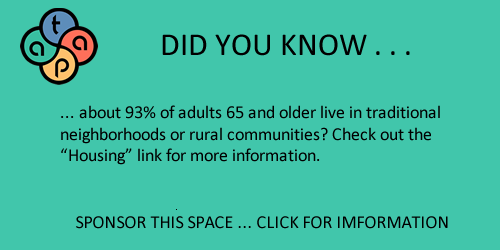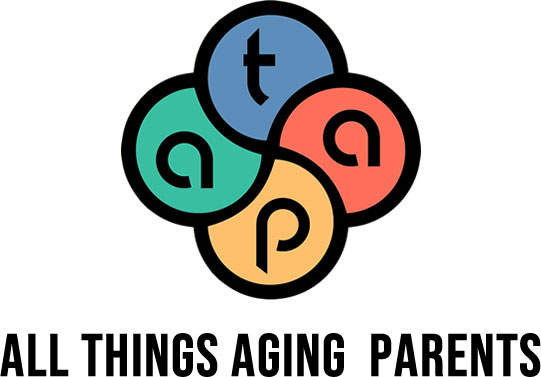No one wants to look straight in the face of their own mortality, so thinking about what kind of care a person wants at the end of life can be daunting. Many people feel like they can put this off “until I am older.” But sometimes the need arises much earlier than anyone could anticipate – like in the event of a serious accident or injury. Because of this, we recommend that all adults (your parents, yes, but also you!) give thought to the issues we discuss here. Having these conversations can be sensitive, but absolutely critical. It may be you who are reluctant to have the conversation. Who likes to think that their parents won’t last forever? But odds are, since you’re on this website, that you understand the importance of this, and are willing to take the (perhaps uncomfortable) first step of raising this subject. These conversations are called “advance care planning.” The forms that document the wishes expressed in these conversations are called “advance directives.” The following is a basic introduction to these important documents involved in caring for our parents, but it is NOT intended to substitute for professional medical and legal advice.
The priority with your parents is having a plan in place before a crisis hits. When emotions are strong and the stakes are high, conflict is possible even among the most loving and reasonable family members. The likelihood of conflict, however, is significantly increased when there has been no prior discussion of what Mom or Dad would want for medical treatment. How will you know if Mom wants to receive artificial nutrition or be maintained on a ventilator unless you talk about it? What are her values? These ethical decisions deserve the weight of serious consideration, rather than expediency or panic.


Deciding who you want to make decisions for you in the event that you can’t make them yourself is a bare minimum of what is needed. Then there is the matter of how you want to be treated if you can’t speak for yourself. Everyone should have the opportunity to express their values on these important matters.
There are treatments that are often focal points for end-of-life decisions:
- Mechanical ventilation
- Artificial nutrition and hydration
- Cardiac support (CPR)
- Dialysis
Obviously, not every situation can be anticipated. We recommend that when having discussions about potential treatments you look at some core values. What do you value most?
- Preservation of life? Then you may be more inclined to accept all available life-sustaining treatments or technologies.
- Freedom from pain? Then controlling pain through medication and sedation may take precedence over maintaining consciousness or extending life.
- Being able to meaningfully interact with family and friends? Then withholding or withdrawing life-sustaining treatment in advanced stages of dementia or traumatic brain injury may be preferable.
You or your parents may have other values that will guide your choices. If you understand these values, it is easier for you to accept the decisions your parents make. If you are their health care proxy, it will be far easier for you to make decisions that will be in line with their wishes.
Before we talk about specific documents, you should have a plan for what to do with these documents. It does no good to have these if no one knows where they are. Talk to your parents about distributing copies of important documents to those who will need to access them. In an emergency, it is a problem to have to guess: Did they put them in the safe deposit box? Where’s the key? Who has access? These are documents that should be readily accessible. Some doctors and hospitals allow patients to keep them on file there, but other copies should be easily obtainable.
Also called Health Care Power of Attorney or Health Care Proxy, this is a legal document that names who you want to be able to speak for you regarding medical decisions if you are not able to speak for yourself. This person does not have to be a family member, but needs to be someone you trust, who knows you well, understands your values, and is capable of making difficult decisions in stressful circumstances. (S)He should be a good communicator and have the courage to represent your wishes even in the face of opposition. (S)He will make treatment decisions when you cannot make them, according to the preferences you expressed in advance in your advance directives (if available). Usually, a health care proxy cannot revoke or override a living will, but must make decisions as (s)he believes the person would make them. They will have access to your confidential medical records.
A health care proxy must be a competent adult (18 or older), and cannot work at the facility where the patient is being treated. It can be different from the person who handles your financial matters. Once you have named your health care proxy in this document, be sure that your family and/or close friends know who it is, so everyone knows who to contact in case of an emergency. This proxy takes effect only if the family, hospital, or nursing home physician has determined that the principal lacks the capacity to make or communicate health care decisions. The proxy should know where this document is and bring it with them if your parent is hospitalized or in the emergency room.
If a person has no designated health care proxy, the state will have a default process for determining a substitute decision maker. Often, the first choice is the spouse, then parent, then adult children, and so on. However, if you have an alternative or blended family the state’s determination might not reflect your wishes. It is especially helpful for someone with a non-traditional family to put their desires into a legal document.
The power of attorney is a state document, so be sure you have it completed in the state where your parents live, or have a new one drawn up if they move. We recommend that you contact a legal or medical professional to obtain these forms.
Sometimes known as a Directive to Physicians and Family or Surrogates, or simply Advance Directive, this document typically is used to refuse life-sustaining treatment in the event of terminal illness (sometimes including “persistent vegetative state”). Physicians have to certify that the condition is terminal or irreversible. Some living wills are general, for example, “I request that all treatments other than those needed to keep me comfortable be discontinued or withheld and my physician allow me to die as gently as possible.” Others are much more specific, detailing specific treatments like artificial nutrition and hydration, mechanical ventilation, etc.
The living will is a state document, so be sure you have it completed in the state where your parents live, or have a new one drawn up if they move. We recommend that you contact a legal or medical professional to obtain these forms.
This is an area that can be really confusing. A person may have a Do Not Resuscitate (DNR) or Do Not Intubate (DNI) Order drawn up by their doctor or hospital to be made part of their medical record (for each admission). However, if that person has a cardiac arrest outside the hospital, that DNR is not applicable, and emergency medical personnel are legally obligated to perform CPR on that person. There is a secondary document that you may want to consider for a parent who is elderly or with advanced or terminal illness. A CPR (Cardiopulmonary Resuscitation) Directive, also known as an Out-Of-Hospital DNR is the only way to prevent CPR from being performed on your parent. This document must be visible and accessible at all times in order for emergency medical personnel to provide care without CPR or intubation. Many people tape this to their refrigerator, or keep this in a “Vial of Life” (see below) with other important medical information. Many facilities (such as nursing homes or assisted living communities) will keep these on file for their residents.
We recommend that you contact a legal or medical professional to obtain these forms.
In this document, the “principal” (the one creating the power of attorney) grants a person (or persons) the legal authority to make decisions and perform certain legal and financial actions for him/her if they become incapacitated. The scope of the powers, whether broad or limited, can be determined as the document is prepared, but usually include banking and financial transactions, real estate, bills, and government benefits. (Note that some government agencies, like Social Security Administration and Veterans Administration, require their own form of POA, which may be called by another name, like “Representative Payee.”) This assistance is invaluable when your parent is incapable of making decisions for themselves, whether through accident or injury or if they are mentally incapable due to Alzheimer’s disease or dementia. It can also be very helpful when your parents are still managing things on their own, but may need an extra set of eyes or hands to be sure bills are paid, and other legal or financial matters need attention.
This is a document that you want to have in place well before it is needed. For example, a person is often not diagnosed with Alzheimer’s until the disease is significantly progressed and they already have substantial cognitive impairment. In order to enact the POA the principal must be legally competent, which could be an issue. The alternative to having the POA, in place before it is needed is to go through a court process to gain guardianship or conservatorship of the person, which may be distressing for all involved.
The durable power of attorney is a state document, so be sure you have it completed in the state where your parents live, or have a new one drawn up if they move. We recommend that you contact a legal professional to obtain these forms.
If your parent has no designated Durable Power of Attorney or Medical Power of Attorney and a sudden illness or injury strikes, or if their cognitive impairment (like Alzheimer’s or dementia) has seriously decreased their ability to understand personal or financial matters, the state can appoint a guardian (to manage their personal or medical affairs) and/or conservator (to manage their financial and legal affairs). The first step is the court determining your parent’s level of incapacity. (They might be incapacitated if they cannot read bills, write checks, or express their preferences clearly. Eccentricity or making bad decisions does not necessarily qualify as incapacity.) In most cases, this is determined in a court hearing at which medical or mental health professionals state their opinion of the person’s capacity. The court may appoint an attorney to represent the person. Court proceedings may be stressful and time-consuming, invasive of the person’s privacy, and expensive (involving court fees, attorney fees, medical reports, etc.). Because establishing a guardianship removes considerable rights from the individual, it should only be used after other alternatives have been tried. The court decides who the guardian and/or conservator will be: a family member, friend, a professional, a bank, or a nonprofit agency, and how much authority is given to the guardian and/or conservator.
Again, if you have an alternative or blended family the state’s determination might not reflect your wishes. It is especially helpful for someone with a non-traditional family to put their desires into a legal document.
Websites such as www.mydirectives.com and www.everplans.com bring advance care planning into the 21st Century. Your parents can express their desires – everything from who will be their health care agent, to what care they do or do not want to receive, to funeral plans – in one place and have that information digitally accessible to their chosen contacts. This leaves open the option of video, audio, or written messages that they want their loved ones to have when they are unable to express themselves.
What about do-it-yourself documents? While our recommendation is to contact an elder care lawyer, boilerplate documents are available from many sources, including office supply stores, Internet sites, etc. However, this do-it-yourself approach may have downfalls. Circumstances and assets are going to vary widely. Many expensive court battles arise from do-it-yourself forms. If you cannot afford an elder law attorney, you may find assistance through senior services or legal aid organizations for a reduced price.
If, however, you choose to proceed on your own, www.caringinfo.org a website of the National Hospice and Palliative Care Organization has state-specific advance directives forms on their website.
Resources:
Here are a couple of resources to help you think through how to talk with your parents:
Here are some additional resources about Advance Care Planning and Advance Directives:
- https://www.nia.nih.gov/health/advance-care-planning-healthcare-directives
- https://www.mayoclinic.org/healthy-lifestyle/consumer-health/in-depth/living-wills/art-20046303
Here is a link to a card that your parents – or you, for that matter - can carry in their wallet, informing others that you have advance directives and who your health care proxy is: https://www.aha.org/system/files/2018-01/piiw-walletcard.pdf.
For more information about the Vial of Life, visit www.vialoflife.com.



















